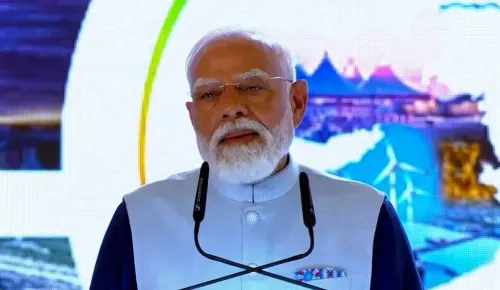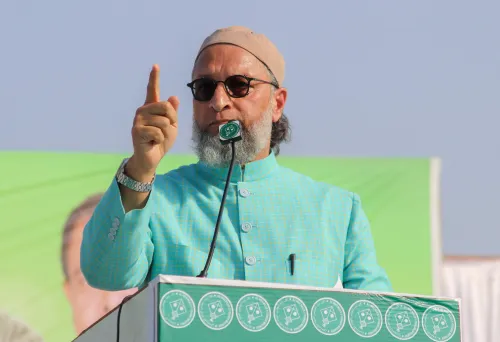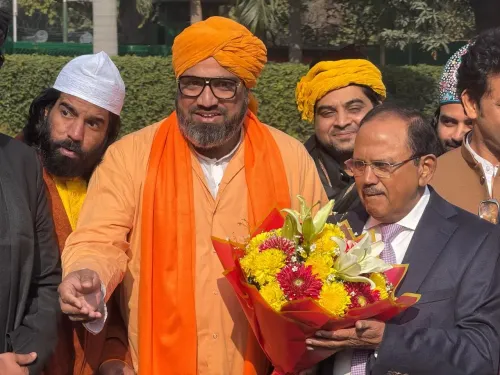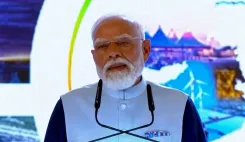How is India-Malaysia Relationship Progressing?
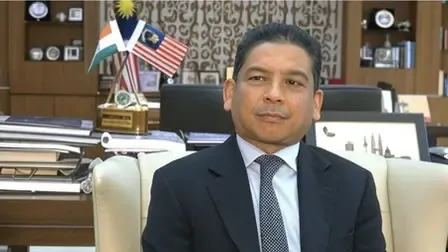
Synopsis
Key Takeaways
- Strengthening bilateral ties through a Comprehensive Strategic Partnership.
- ASEAN Summit presents an opportunity for regional collaboration.
- Malaysia emphasizes the importance of stability in the Indo-Pacific region.
- Legal processes will dictate the status of Zakir Naik’s extradition.
- Economic cooperation is crucial amid geopolitical shifts.
Malaysian High Commissioner to India, Dato' Muzafar Shah Mustafa, commended the strengthening bilateral relations between the two nations on Tuesday, highlighting the transition to a Comprehensive Strategic Partnership.
In an exclusive interview with IANS, Mustafa discussed the forthcoming ASEAN Summit under Malaysia's leadership later this month, expressing anticipation for Prime Minister Narendra Modi's attendance.
Excerpts:
IANS: How has the bilateral relationship between India and Malaysia evolved recently?
Muzafar Shah Mustafa: Our relationship has seen steady growth, anchored in our historical and cultural ties. This was exemplified by our Prime Minister's visit last year, marking a significant step in solidifying our bilateral ties, further demonstrated by our elevation to a Comprehensive Strategic Partnership.
IANS: The 47th ASEAN Summit is set for Malaysia on October 26. How crucial will this event be?
Muzafar Shah Mustafa: As the current ASEAN chair, Malaysia places immense significance on our leadership, focusing on inclusivity and sustainability. This summit will be pivotal, drawing leaders from ASEAN and partner nations like India to discuss future priorities.
IANS: Has an invitation been extended to US President Donald Trump for the summit? Is his attendance confirmed?
Muzafar Shah Mustafa: The United States is a key dialogue partner for ASEAN, and we have invited all heads of state from these partnerships. President Trump indicated he would attend, and we are preparing to welcome all leaders.
IANS: Is there a strong possibility of a meeting between PM Modi and President Trump in Malaysia? How significant could this be for India-US relations?
Muzafar Shah Mustafa: Leaders present are likely to seize the opportunity for discussions on the sidelines. While I can't confirm specific plans, Malaysia would be honored to facilitate a meeting between India and the US.
IANS: Will cross-border terrorism be on the agenda during the ASEAN meeting?
Muzafar Shah Mustafa: All pertinent issues among ASEAN nations and dialogue partners will be addressed, including terrorism.
IANS: Are there any proposals related to Gaza planned for the summit?
Muzafar Shah Mustafa: I’m not aware of any specific proposals, but we advocate for all efforts that aim to restore peace and rebuild Gaza.
IANS: The Indian Navy's warship INS Sahyadri recently visited Malaysia, enhancing defense ties. What are your views on this?
Muzafar Shah Mustafa: We prioritize bilateral maritime cooperation with India, emphasizing stability in the region, particularly in the South China Sea and Indo-Pacific.
IANS: Zakir Naik resides in Malaysia and is wanted in India. Is his extradition possible?
Muzafar Shah Mustafa: We have a bilateral extradition treaty with India, and Zakir Naik’s case is undergoing legal proceedings in a Malaysian court. The decision lies with the judiciary, and we have not seen grounds for extradition.
IANS: Will Malaysia fully cooperate with India regarding Zakir Naik's extradition?
Muzafar Shah Mustafa: Yes, we will extend our utmost cooperation, but it must adhere to the legal process.
IANS: How can geopolitical changes foster deeper economic ties between India and Malaysia?
Muzafar Shah Mustafa: As regional and maritime neighbors, it’s essential for Malaysia and India to collaborate closely in political security and economic development. India is a crucial regional actor and is emerging as a significant global player; thus, maintaining strong ties is vital.


